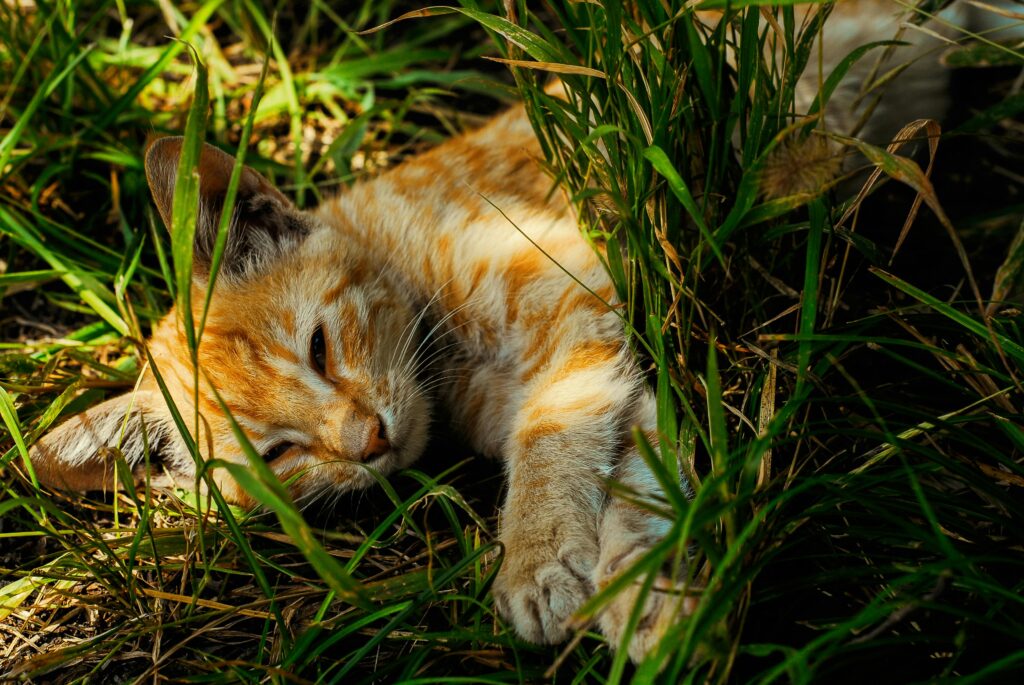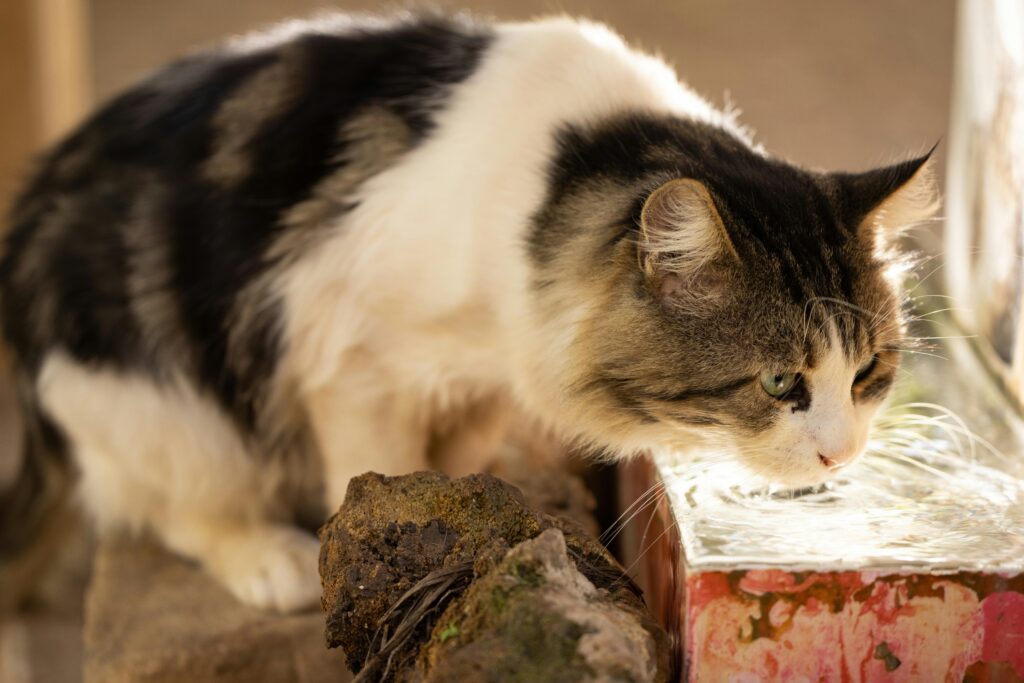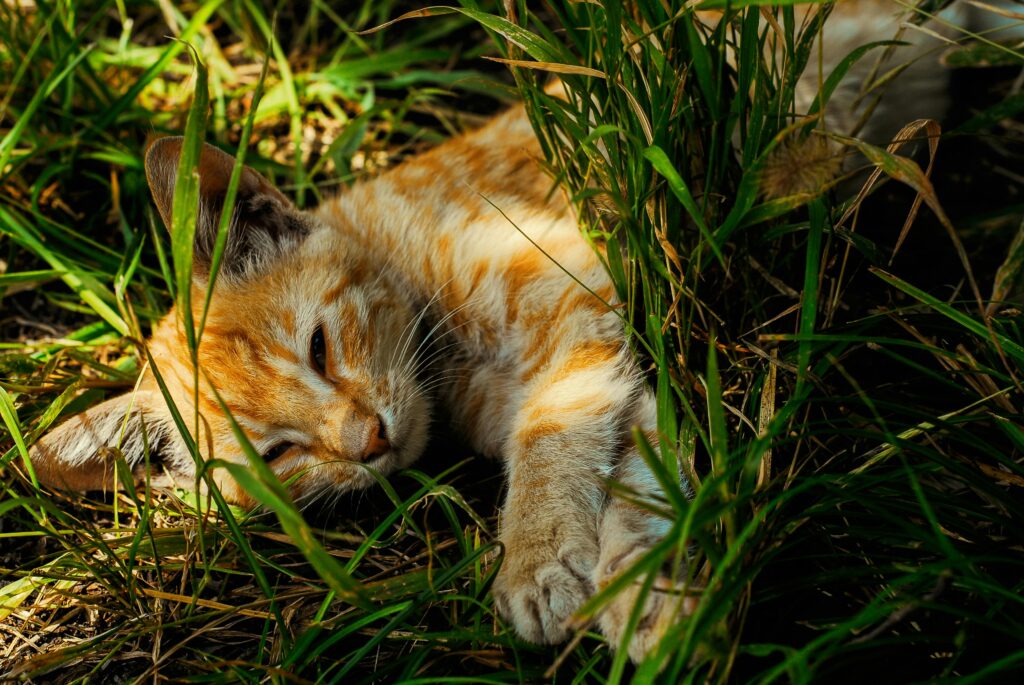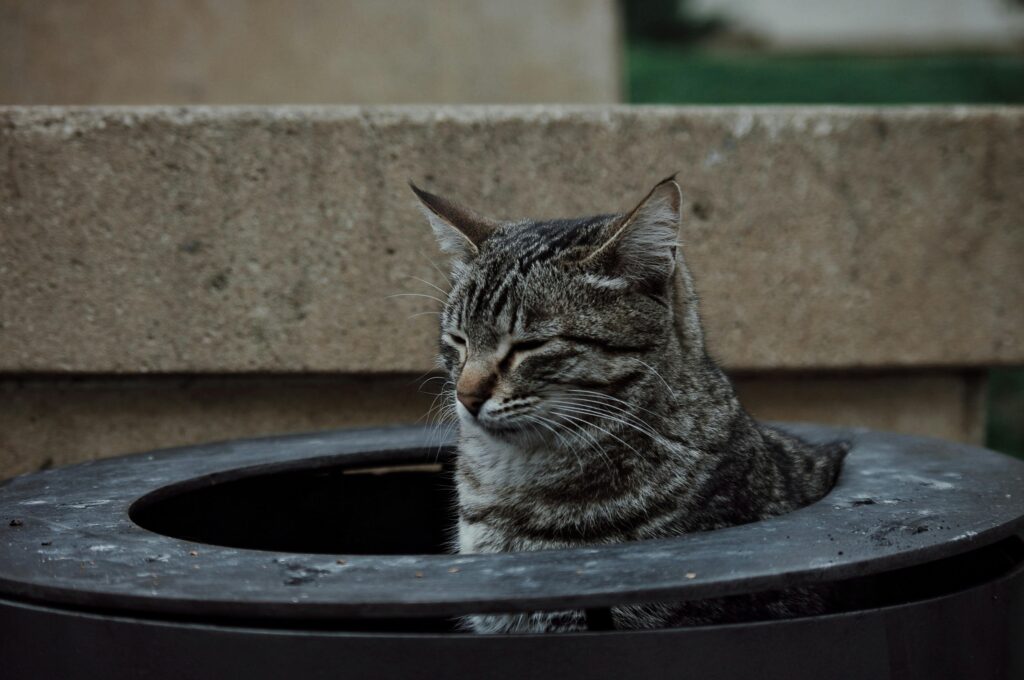Cats are notorious for hiding their discomfort, often masking signs of illness until it becomes severe. As a responsible cat owner, it’s crucial to be aware of subtle changes in your cat’s behavior and physical condition that may indicate they are sick.
Here’s 6 signs that your cat is sick and needs veterinary attention.

1. Changes in Appetite or Drinking Habits
One of the earliest indicators of illness in cats is a change in their eating or drinking habits.
- Loss of Appetite: If your cat suddenly stops eating or shows less interest in food, it could be a sign of an underlying health issue such as dental problems, gastrointestinal issues, or even kidney disease.
- Increased Thirst: Excessive thirst can indicate conditions like diabetes mellitus or kidney disease. Cats with these conditions may drink more water than usual due to increased urination.
- Changes in Water Intake: Monitor if your cat is drinking more frequently than usual. This could signal an issue with their kidneys or other organs.

2. Vomiting and Diarrhea
Vomiting and diarrhea are common symptoms that can arise from various health issues:
- Vomiting: While occasional vomiting might not be alarming (e.g., hairballs), frequent vomiting can indicate serious problems such as infections, liver disease, or intestinal blockages. If the vomit contains blood or persists for more than two days, seek immediate veterinary care.
- Diarrhea: Diarrhea can result from dietary changes, stress, parasites, allergies, infections (including those affecting the liver and kidneys), cancer, and more. Persistent diarrhea should prompt a visit to the vet to rule out serious conditions.
3. Lethargy and Changes in Activity Levels
A decrease in energy levels is often one of the first noticeable signs that something is amiss:
- Lethargy: Cats who sleep excessively or show little interest in activities they once enjoyed might be experiencing health issues like arthritis pain, upper respiratory infections, kidney disease, among others.
- Changes in Playfulness: A sudden lack of inclination to play could signal discomfort due to injury (e.g., arthritis)or internal health problems like hyperthyroidism.
4. Changes in Urination Habits
Alterations in urination patterns can indicate several potential health concerns:
- Inappropriate Elimination Behavior: Cats peeing outside the litter box may have urinary tract infections (UTIs), bladder stones, kidney stones, diabetes insipidus, etc.
- Blood In Urine Or Straining To Urinate: These symptoms require immediate veterinary attention as they could signify severe urinary tract issues such as blockages which are life-threatening for male cats especially.
5. Grooming Problems And Skin Irritation
Poor grooming habits often reflect underlying discomfort:
- Neglecting Grooming Or Over-Grooming: Both neglecting grooming duties leading to matted fur and excessive grooming causing bald spots suggest stress/anxiety but also possible skin irritations/allergies which need medical evaluation.
- Hair Loss Or Skin Irritation: These symptoms might point towards allergies/parasites requiring treatment by a veterinarian before complications arise like secondary bacterial/fungal infections on irritated areas.
6. Increased Vocalization And Behavioral Changes
Cats communicate primarily through vocalizations; changes here should not be ignored:
- Increased Vocalization: More meowing/crying may signal pain/discomfort/stress related either directly from medical causes (like dental pain)or indirectly through environmental factors needing adjustment.
–Withdrawal Or Aggression: Sudden withdrawal/hiding/hostility when approached indicates fear/pain potentially linked with undiagnosed injuries/illnesses requiring professional assessment.


If you notice any unusual behavior from your feline companion that persists over time without improvement after basic care adjustments at home—it’s always best practice seeking advice from a veterinarian promptly! Early detection allows for timely intervention which significantly improves outcomes when addressing many common feline ailments effectively ensuring YOUR PETS DESERVE THE BEST!


Thank you for this info!